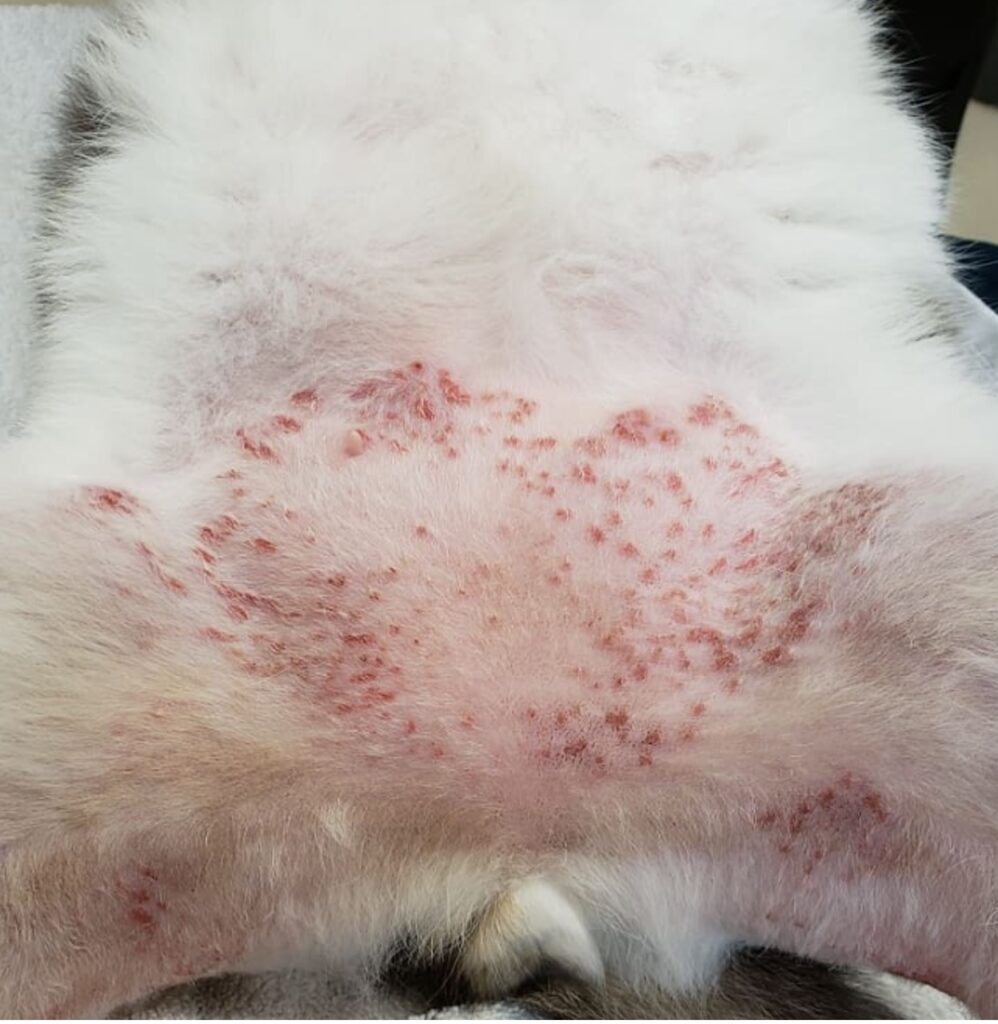Overgrooming cats are frequently thought to be bored, anxious, or stressed. The truth is, psychogenic or situational itch is extremely rare in cats, and can only be diagnosed by ruling out the far more common cause of itch: allergic skin disease. Even moreso than dogs, cats can be sneaky about their allergies and their lesions can be much more subtle, or look quite different than simple scratches on the skin. Here are some common manifestations of allergic itch in cats:
· Puffy/pouty lips and lesions in the mouth –eosinophilic granulomas or rodent ulcers are lesions that cause puffy disfiguration and ulceration of the lower and upper lips. These lesions can also occur on or under the tongue, as well as the hard or soft palate, sometimes causing halitosis and pain with eating. Despite not being on the skin proper, these are known to be lesions of allergic skin disease and respond to anti-allergy medications and treatments.

· Bald belly syndrome (AKA overgrooming) – cats with bald bellies (as well as the skin of the limbs and head or neck) are cats who are excessively grooming, most often due to allergic itch. While many cat owners report seeing their cats “corncob” their hair away, there are some cats who will sneak away to do it in private, creating an air of mystery around the origin of hair loss.

· Eosinophilic plaques – these rather severe looking raised and ulcerative plaques can be found on the belly, face, paw pads, and limbs of cats with allergies. These are thought to be self-induced lesions that occur as a result of significant allergic inflammation. Sometimes these can grow so large and irregular that biopsy will be needed to distinguish them from something more sinister.

If your cat is displaying signs of itch or allergy, a board-certified dermatologist can aid in helping to identify the underlying cause and find an effective management plan. If you think your pet is itchy and would like more information on our Dermatology service or to schedule an appointment please visit the Dermatology page.

Dr. Lindsey Citron is a Diplomate of the American College of Veterinary Dermatology. She graduated from the TUFTS University, where she majored in English Literature. She attended veterinary school at the University of Pennsylvania School of Veterinary Medicine before completing a 1-year Small Animal internship at Friendship followed by a 3-year dermatology residency program at the University of Pennsylvania School of Veterinary Medicine.
